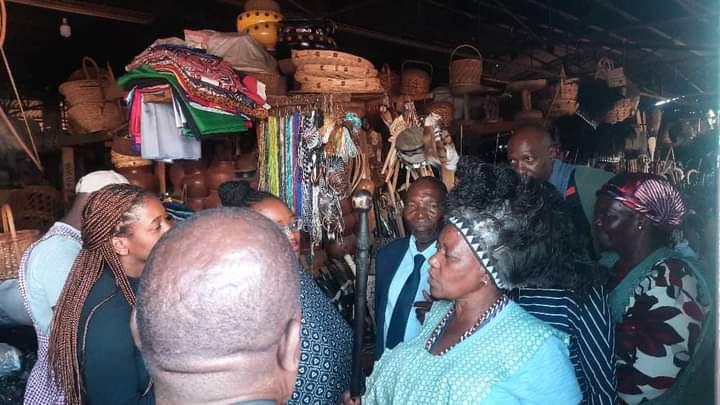The Harare Institute of Technology (HIT) hosted its inaugural Partners’ Breakfast Meeting today at the HIT Innovation Hub. This event brought together industry leaders, government officials, academics, and development partners under the theme “Creating Opportunities for Networking and Fostering Synergies.” It showcased HIT’s dedication to advancing technological innovation and fostering strategic collaborations to accelerate Zimbabwe’s industrialisation.
In his opening remarks, HIT Vice Chancellor Professor Q.C. Kanhukamwe reaffirmed the university’s core mandate as outlined in the HIT Act of 2005. This Act emphasises HIT’s role in developing, incubating, transferring, and commercialising technology to facilitate the rapid industrialisation of the country. Prof. Kanhukamwe stressed that harnessing innovation is crucial for transforming Zimbabwe’s economy, with the university playing a key role in catalysing research-driven growth and entrepreneurship.
The Vice Chancellor outlined several recent milestones that demonstrate HIT’s impactful research outputs. These include the deployment of various integrated systems across government and industry, such as the Ministry of Mines’ Export Licensing System, the Bureau de Change System adopted by the Reserve Bank of Zimbabwe, and the MinervaERP implemented at the Minerals Marketing Corporation of Zimbabwe (MMCZ).
The university also launched the Local Authorities Database System (LADS ERP) across 81 of Zimbabwe’s 92 local authorities. Furthermore, the TapCard and Vehicle Tracking Systems were deployed at ZUPCO, enhancing transportation management, while NdaramaERP was implemented at HIT and extended to other universities.
HIT’s Fuel Management System is now operational at ZPC Hwange. The School of Information Science and Technology has developed online and mobile games that have been published on Google Play for Childline.
Prof. Kanhukamwe noted that HIT has successfully produced battery-grade lithium carbonate and lithium iron phosphate (LiFePo), as well as developed low-voltage, high-current lithium batteries. “The University is also working on renewable energy solutions, including designing solar panels, deploying 30MW of solar energy, and developing solar LED lights and charging stations. These innovations highlight HIT’s strategic focus on supporting Zimbabwe’s energy, manufacturing, and industrial sectors through cutting-edge technology,” the Vice Chancellor stated.
He also presented details about HIT’s state-of-the-art laboratories across various disciplines, which include Digital & Simulation, Robotics & Prototyping, Material Characterisation, Drug Discovery, Analytical Chemistry, Food Science, the Internet of Things (IoT), Networking, Artificial Intelligence, Anatomy, Medical Physics, Pharmaceutical Quality Control, Digital Forensics, and Financial Modelling. “These facilities are essential for nurturing innovation and providing students with practical skills aligned with national development priorities,” he said.
Prof. Kanhukamwe emphasised the importance of collaborations to enhance HIT’s impact. Key partnership opportunities include collaborating with Norton Teaching Hospital to advance health sciences, the Vice Chancellor’s Innovation and Scholarship Fund to support research and student development, establishing specialized high-end research laboratories, commercializing intellectual property generated through university research, providing research, development, and innovation support to industry, offering scholarships and internship programs for students, and partnering on curriculum development, equipment supply, and welfare initiatives.
He noted that such partnerships are crucial for creating an ecosystem where academia, industry, and government work together to achieve Zimbabwe’s industrialisation goals.
Prof. Kanhukamwe underscored HIT’s strategic role as a hub of innovation. By leveraging its research outputs, advanced laboratories, and strategic alliances, the university aims to catalyse Zimbabwe’s transition into a knowledge-based economy, driving sustainable growth and development.
The Breakfast Meeting concluded with a call for stakeholders to strengthen collaborations, invest in research, and harness technological innovations to build a prosperous future for Zimbabwe.
The Harare Institute of Technology is Zimbabwe’s leading technological university, committed to fostering innovation, entrepreneurship, and industrial development through cutting-edge research and education.





























